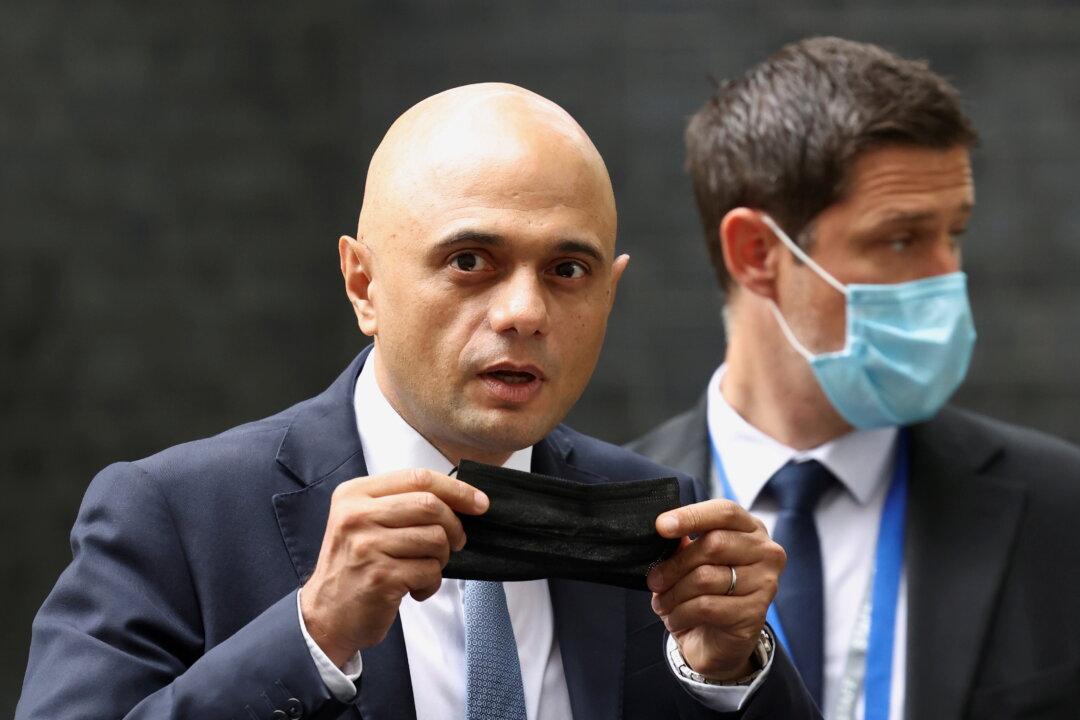Vaccine passports and mask mandates aren’t in the main parts of the UK government’s COVID-19 winter plan, but are being kept as part of a contingency plan in case the National Health Service risks “unsustainable pressure,” according to the government announcement.
Health Secretary Sajid Javid on Sept. 14 announced the government’s autumn and winter plan (pdf) for England to manage the CCP virus pandemic and other seasonal illnesses such as influenza. Javid spoke in Parliament ahead of Prime Minister Boris Johnson’s scheduled televised briefing in the evening.





